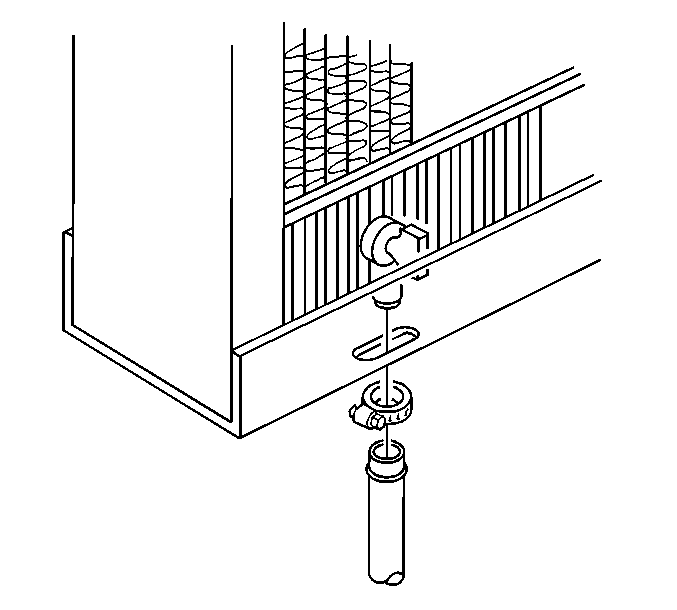Draining Procedure
Caution: To avoid being burned, do not remove the radiator cap while the engine is at normal operating temperature. The cooling system will relieve scalding fluid and steam under pressure if the cap is removed while the engine and radiator are still hot, causing serious injury.
Notice: Two sealant pellets GMSPO P/N 3634621 must be added to the radiator whenever the coolant system is drained and refilled with fresh coolant. Failure to use the correct sealant pellets may result in premature water pump leakage. Do not add the pellets to the coolant recovery bottle since this may prevent the coolant system from operating properly.
- Place a drain pan under the radiator drain cock.
- Ensure that the cooling system is cool.
- Remove the radiator cap.
- Open the drain cock at the bottom of the radiator.
- Allow the cooling system to drain until the coolant flow stops.
- Open the cylinder block drain cock and the plugs.
- Open the accessory drain cock and the plugs.
- Allow the engine block to drain until the coolant flow stops.
- Disconnect the coolant hose from the air compressor, if equipped.

Ensure that the capacity of the drain pan is at least 30.3 liters (32 quarts).
Filling Procedure
Notice: Do not use a solution stronger than 70 percent antifreeze. Pure antifreeze will freeze at -22°C (-8°F).
- Close the engine block drain plugs.
- Close the radiator drain cock.
- Fill the cooling system with coolant solution.
- Fill coolant to the HOT LEVEL of the coolant recovery reservoir if the following conditions exist:
- Fill the surge tank to the cold engine level, if the vehicle is equipped with a surge tank.
- Install the radiator cap.
- Run the engine in order to remove the air from the system.
- Ensure that the coolant is sufficiently cool. Ensure that the pressure is off.
- Remove the radiator cap.
- Recheck the coolant level. Add additional coolant if necessary.
- Reinstall the radiator cap.

Important: Use Caterpillar® Heavy-Duty coolant for Caterpillar® diesel engines.
| • | The vehicle is equipped with a coolant recovery reservoir. |
| • | The engine is at normal operating temperature. |
